2024 Toyota Land Cruiser Vs. 2024 Lexus GX 550: Which Tows Better?
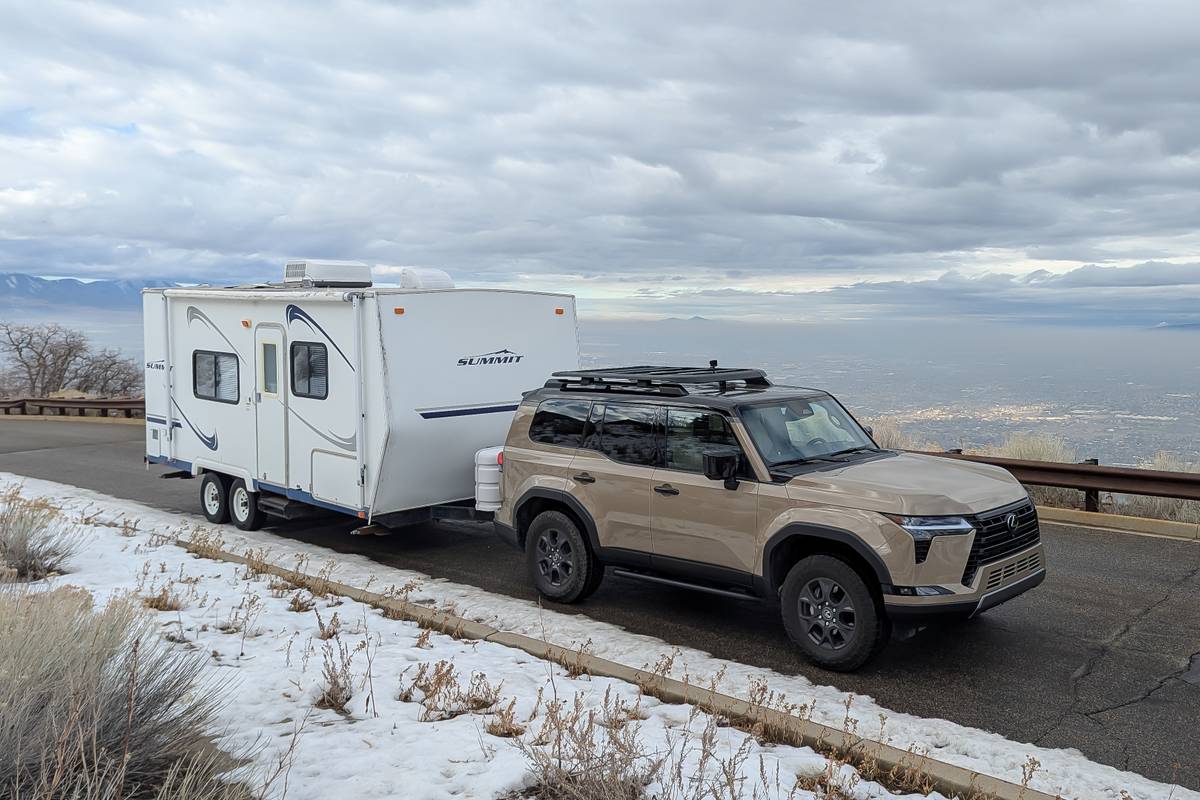
I recently put the 2024 Toyota Land Cruiser First Edition through my standardized towing test, and shortly after, I repeated that test with the 2024 Lexus GX 550 Overtrail+. While these two vehicles are from the same family and share their underlying structure (Lexus is Toyota’s luxury division), there are significant differences that affect their towing capabilities. In fact, one turned out to be much more confidence-inspiring than the other, and I’ll explain why.
Related: 2024 Toyota Land Cruiser: How Well Does It Tow?
What Are the Engine/Transmission Differences Between the Lexus GX and Toyota Land Cruiser?
Powering the new-generation Land Cruiser is a turbocharged 2.4-liter gasoline-electric hybrid powertrain. Toyota lists the peak ratings at 326 horsepower and 465 pounds-feet of torque, and peak torque happens at 1,700 rpm, which is very low in the rev range for this type of vehicle.
Sandwiched between the engine and eight-speed automatic transmission is an electric motor receiving energy from a 1.87-kilowatt-hour battery sitting under the rear cargo deck.
Lexus went a different route by using a 349-hp, twin-turbocharged 3.4-liter V-6 in the GX 550. Peak torque is 479 pounds-feet, which arrives at 2,000 rpm and continues up to 3,600 rpm. Like the Land Cruiser, this is quite low in the rev range for this class of vehicle.
Power is routed with a 10-speed automatic transmission. The two additional gears make for a slightly lower first gear and higher top gear when compared to the Land Cruiser.
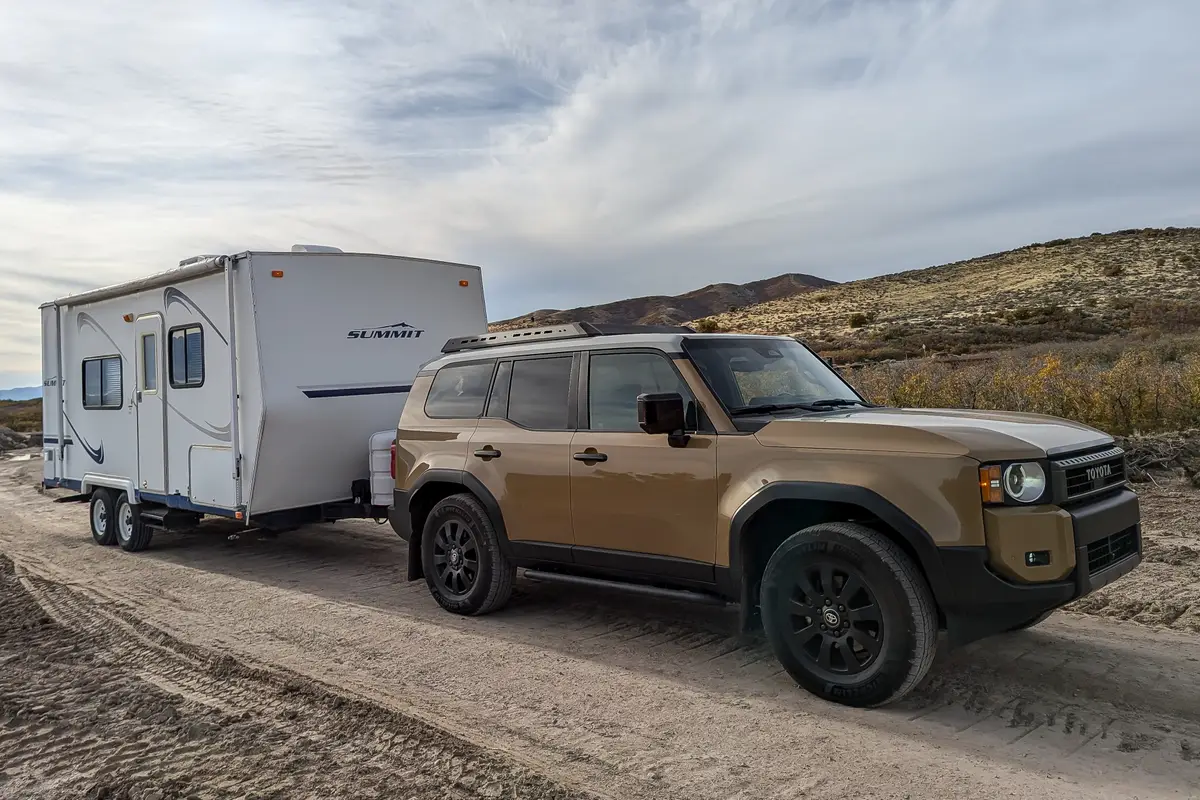
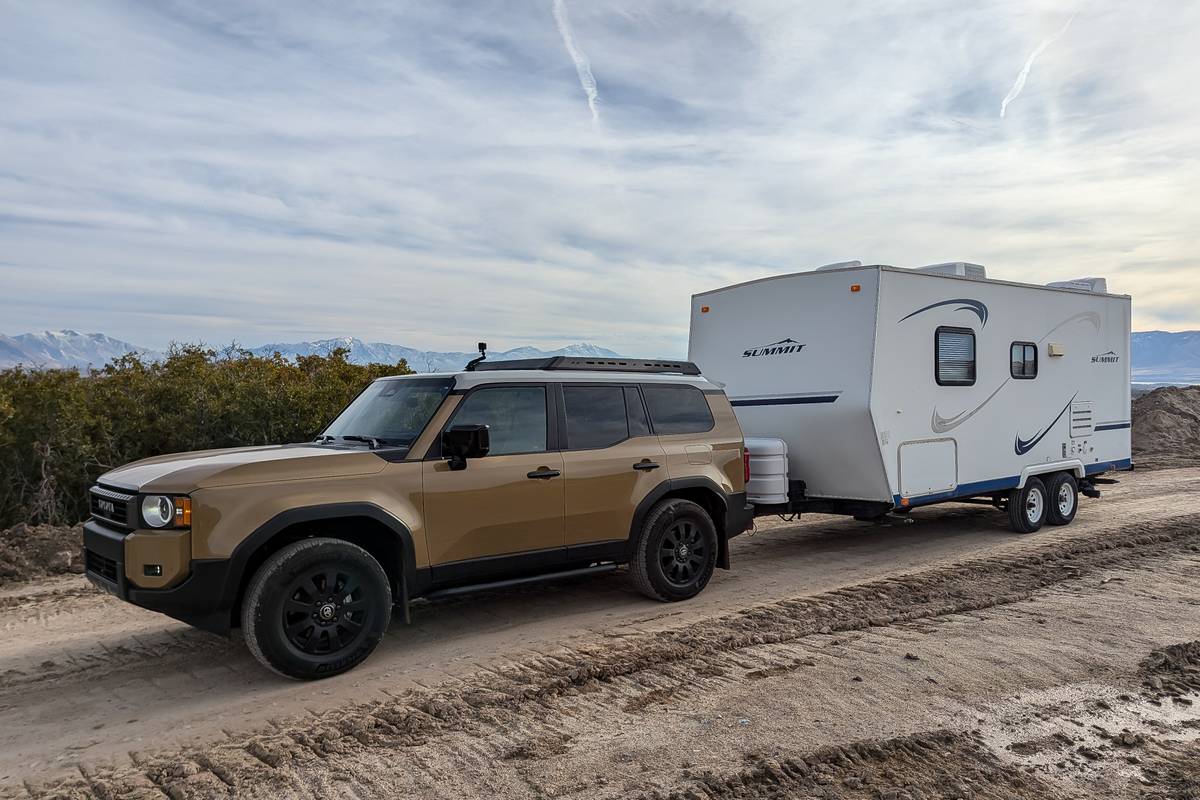
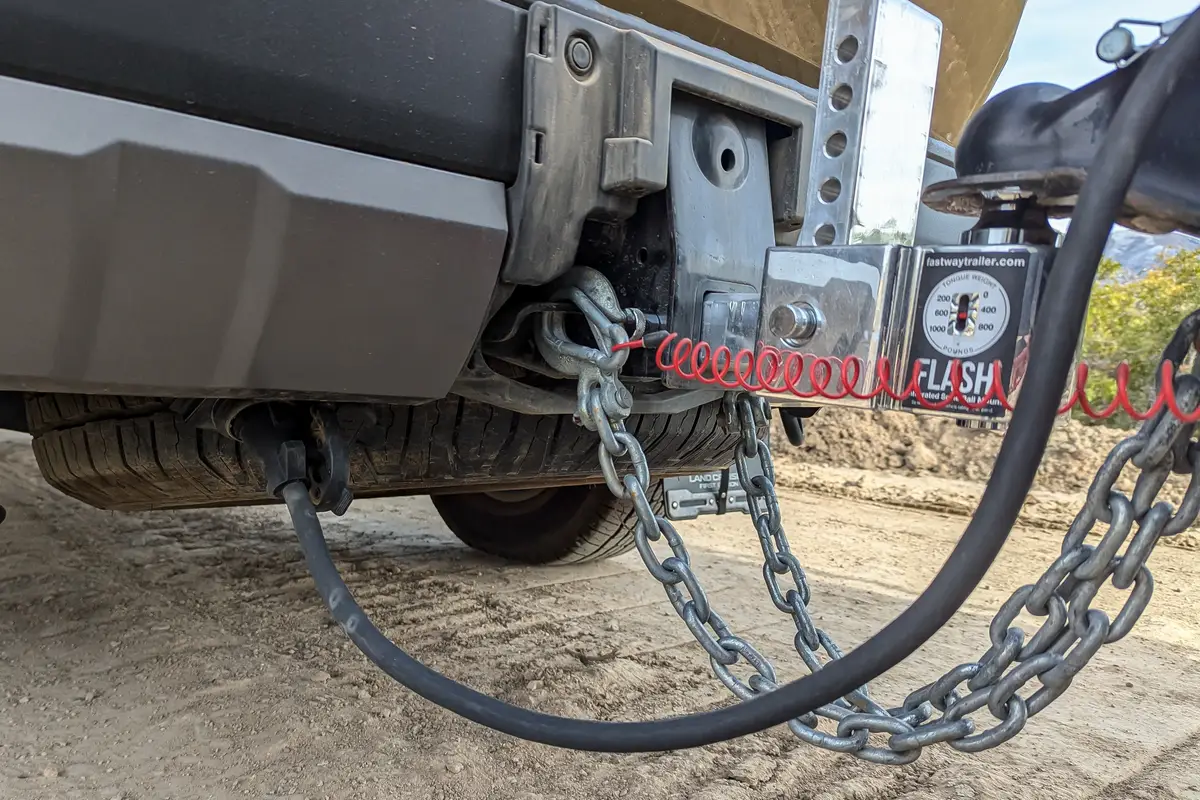
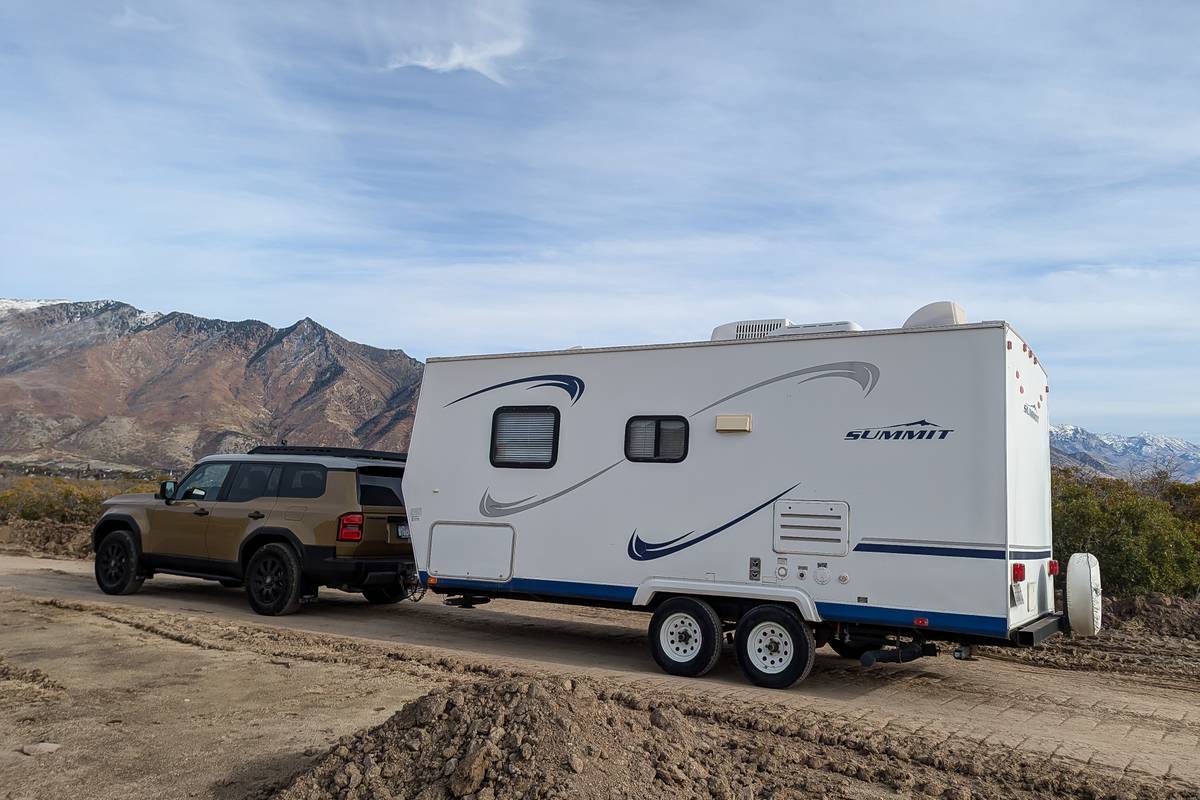
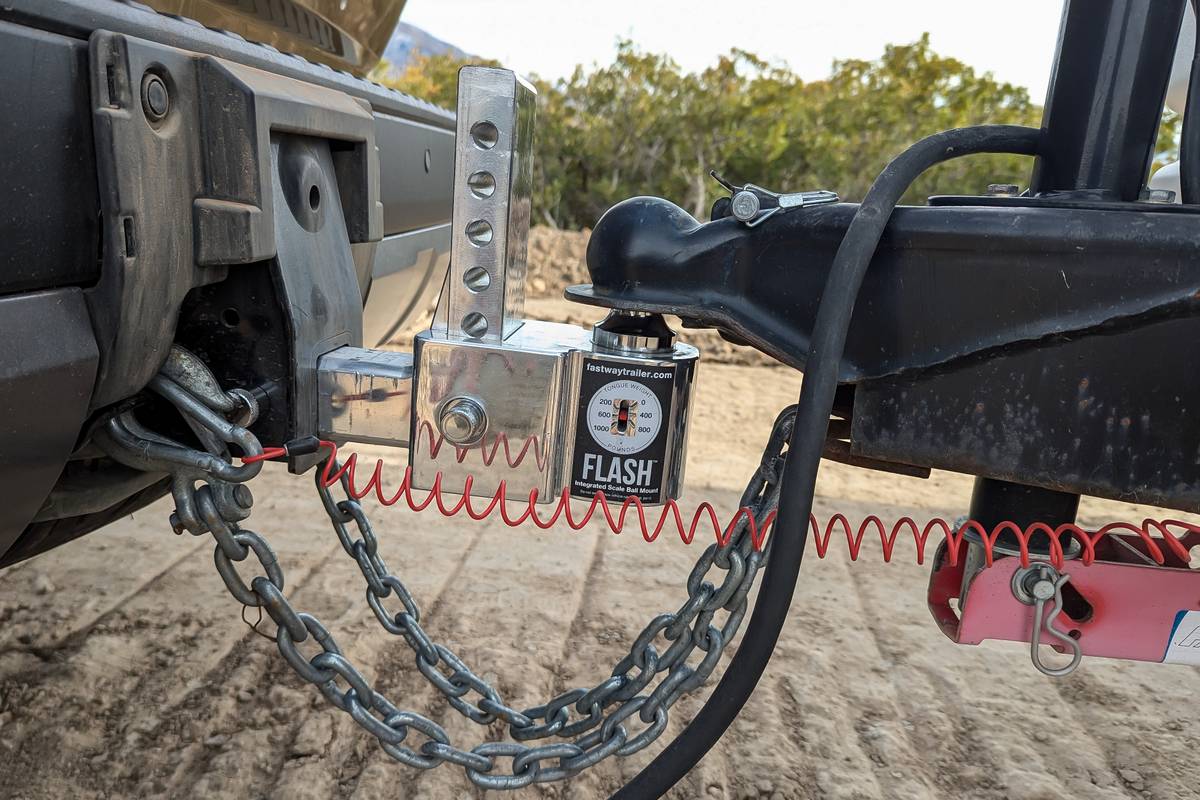
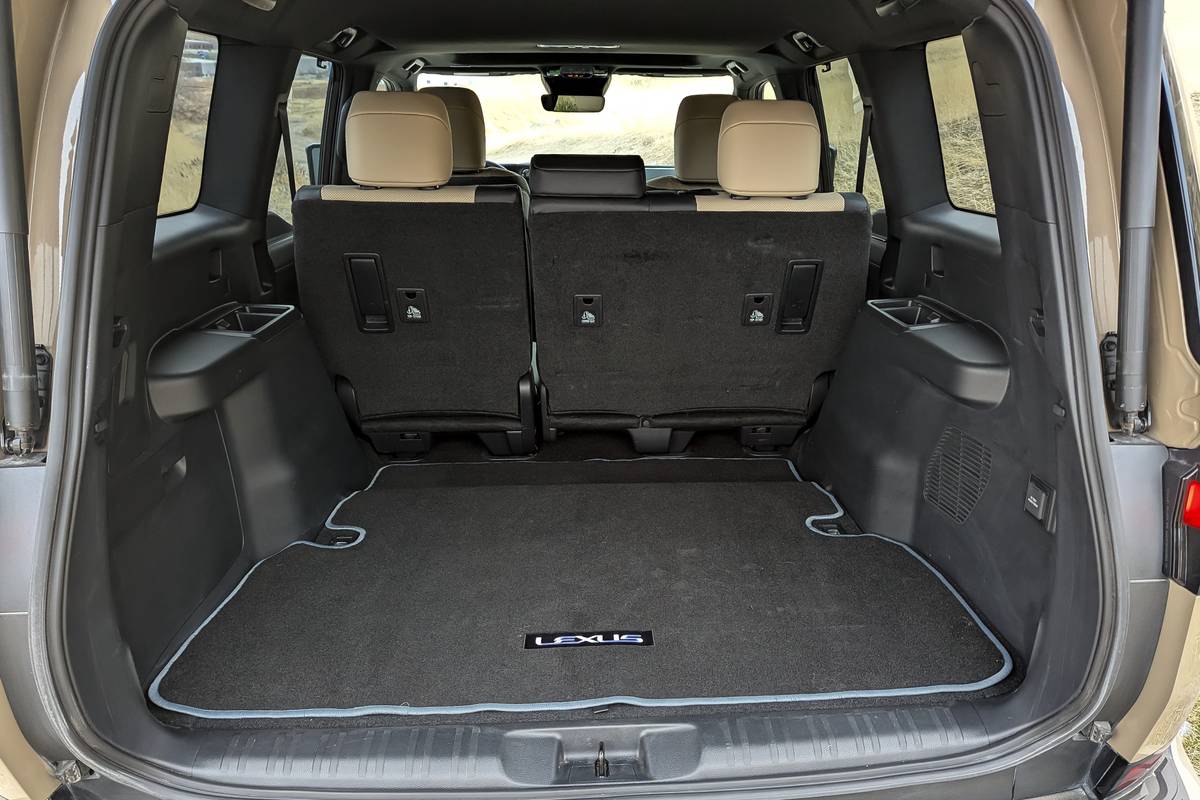
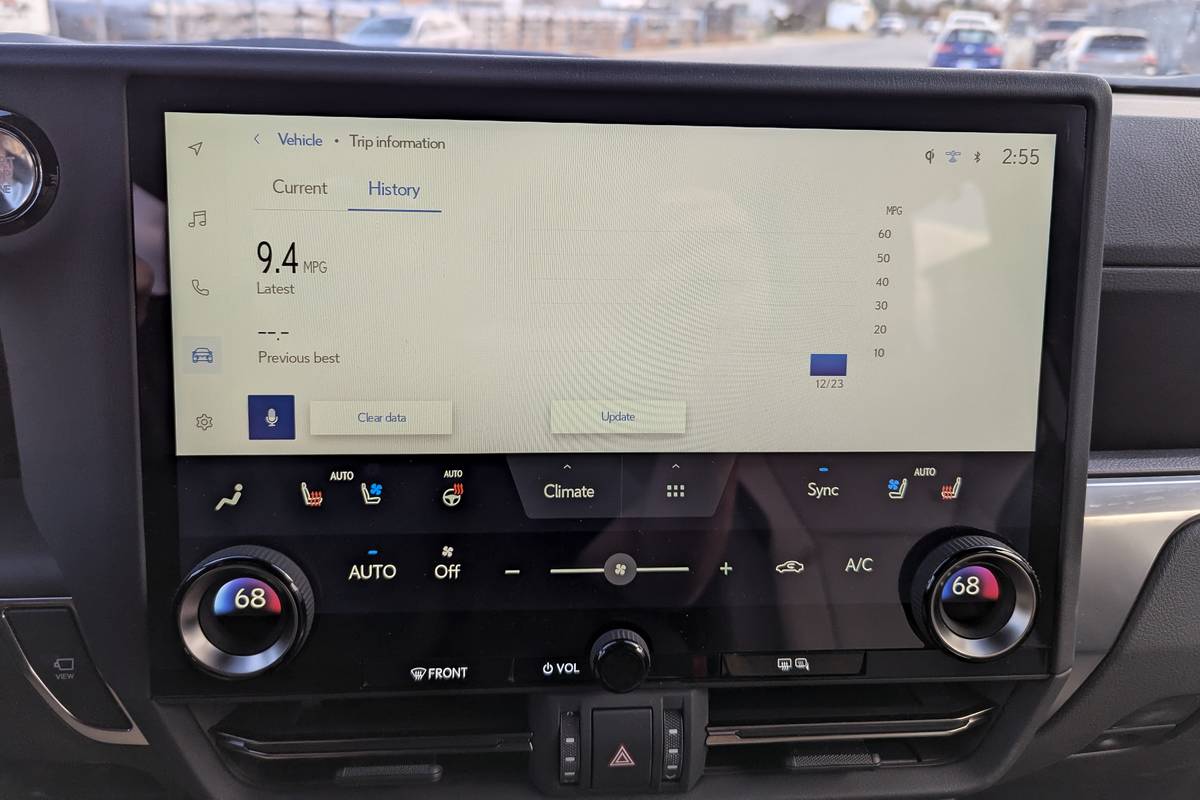
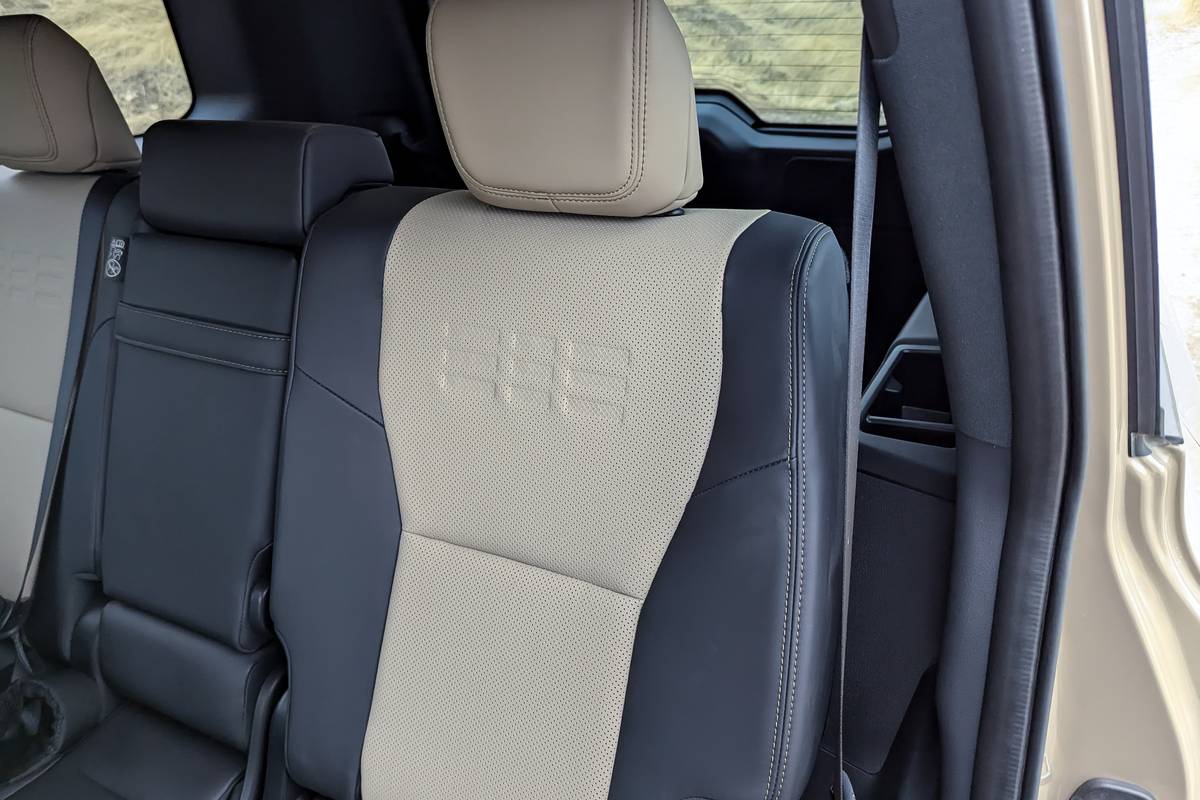
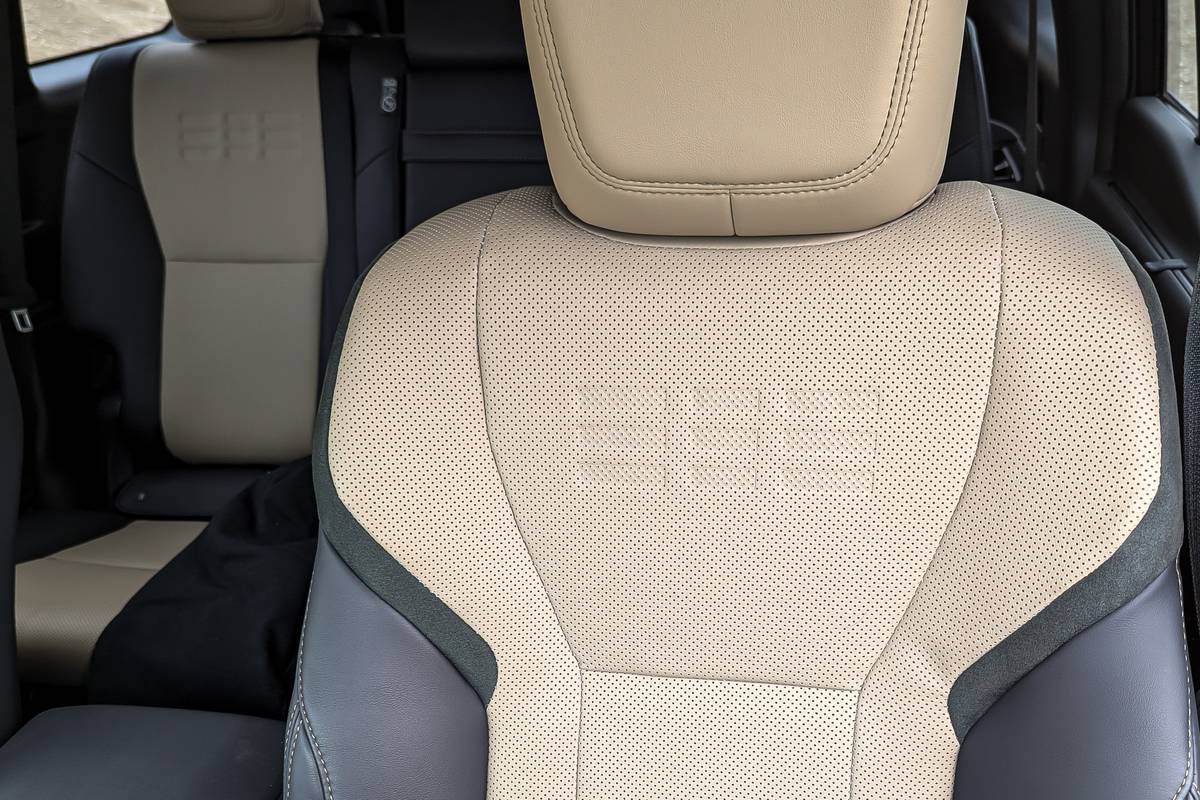
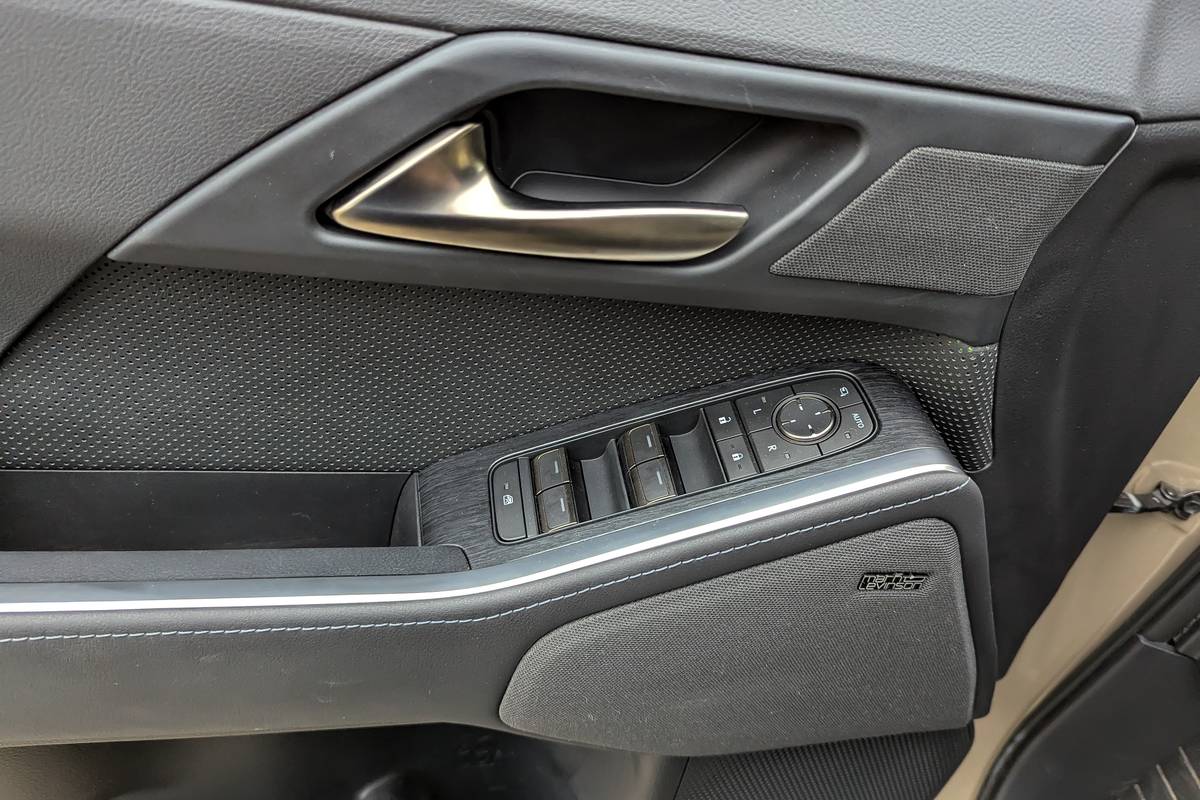
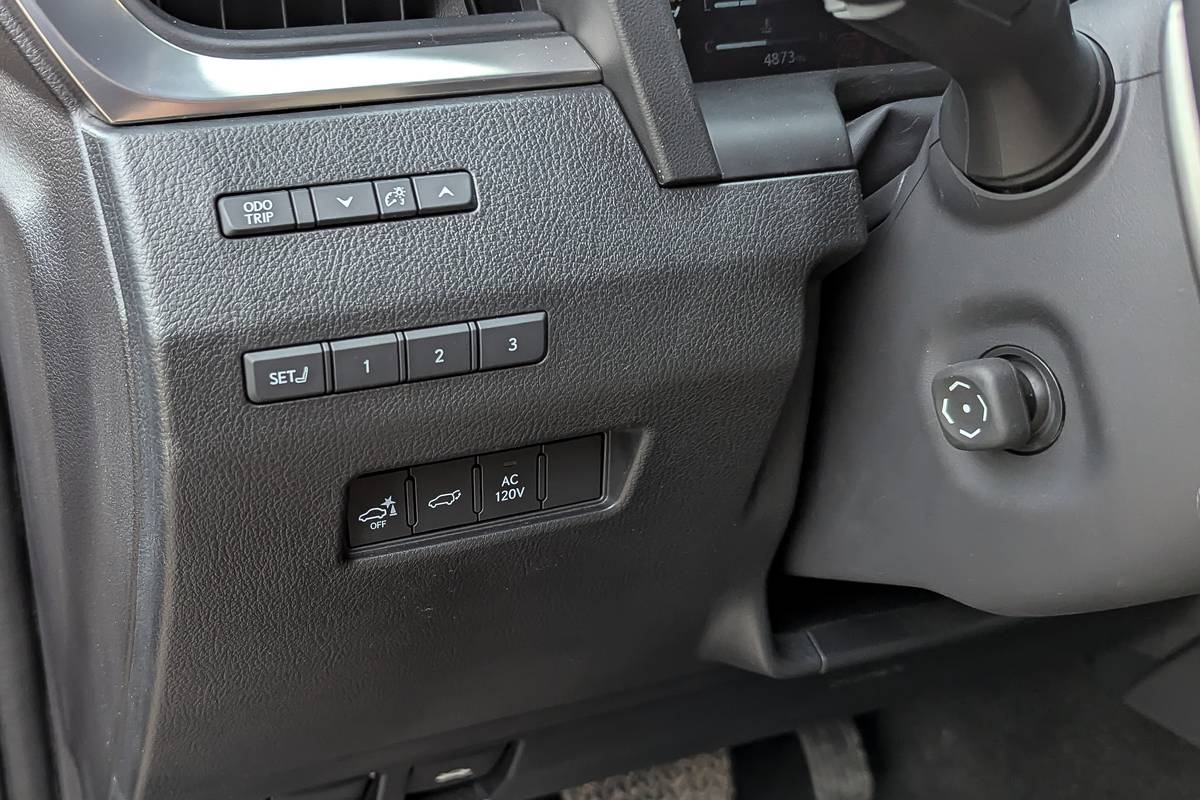
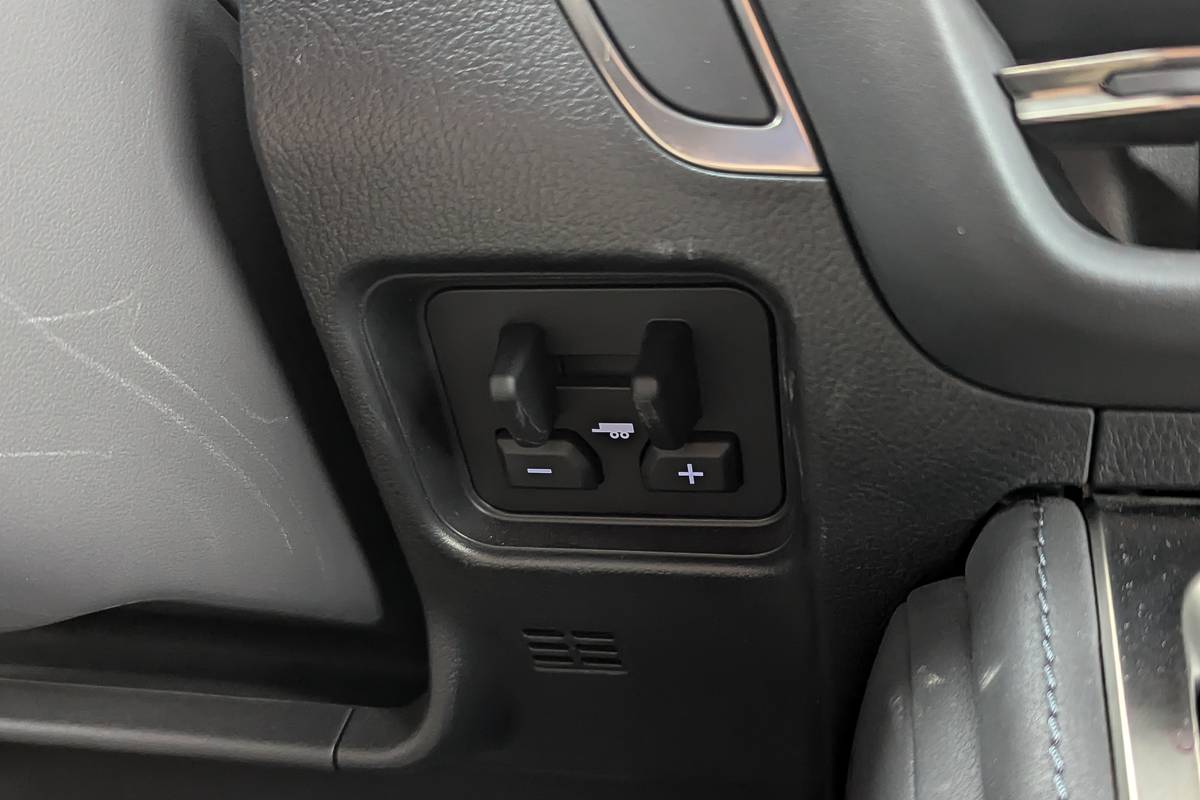
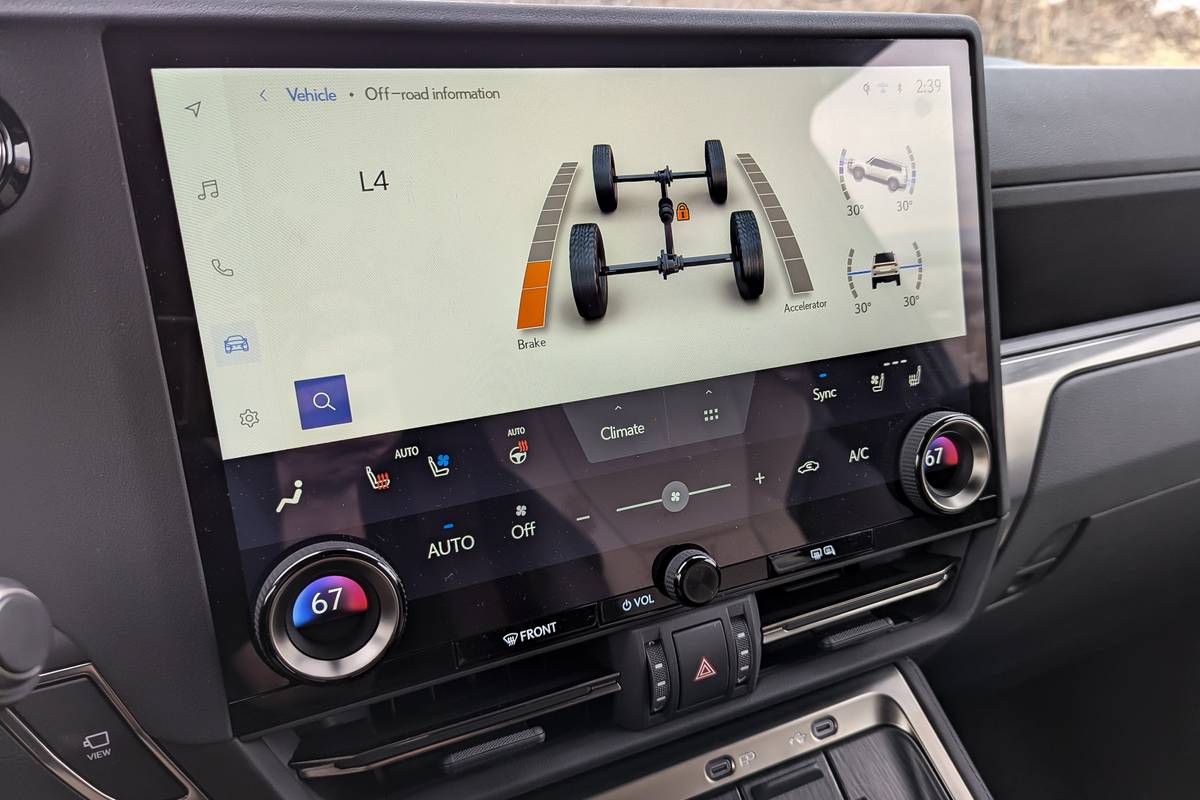
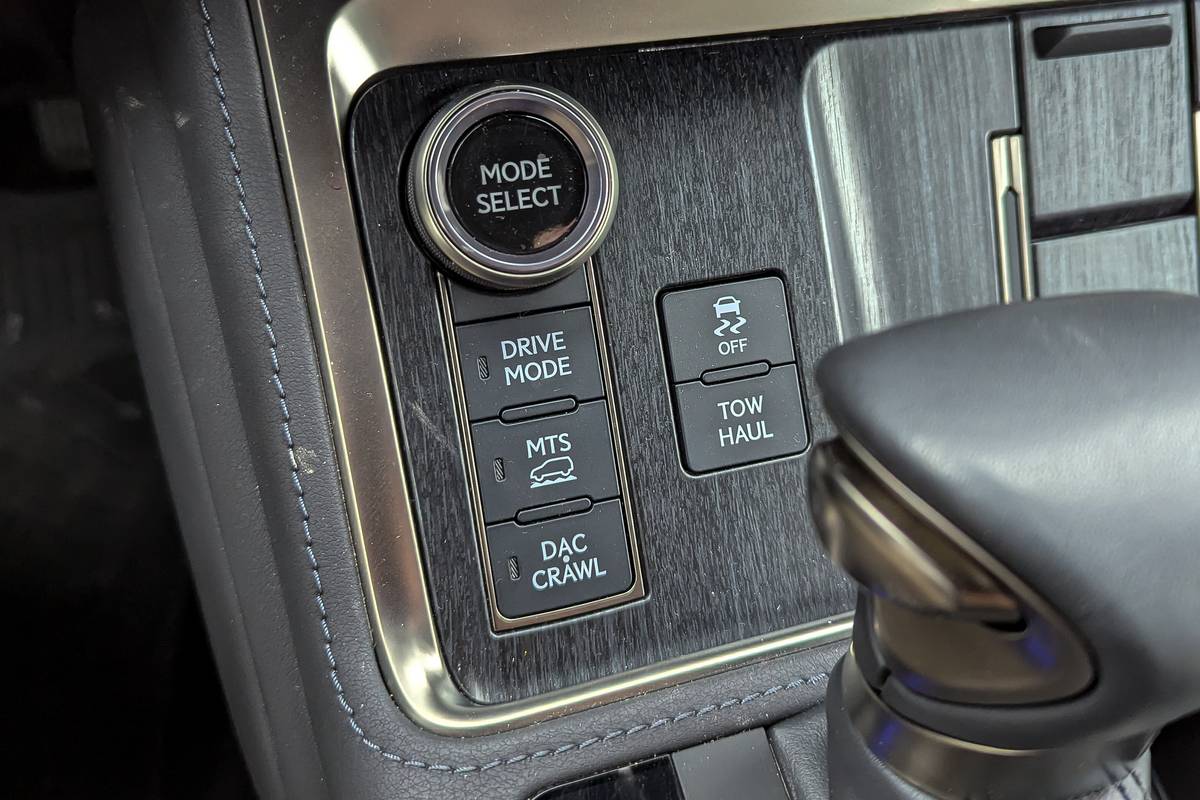
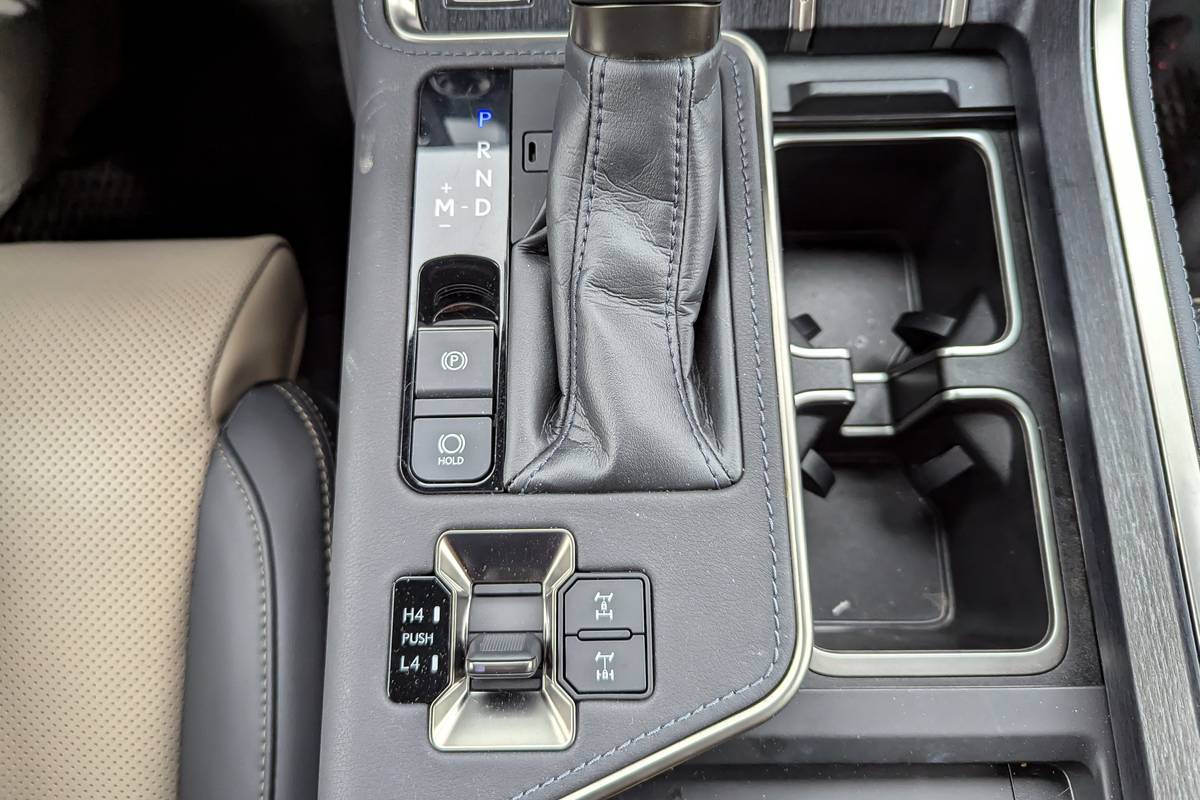
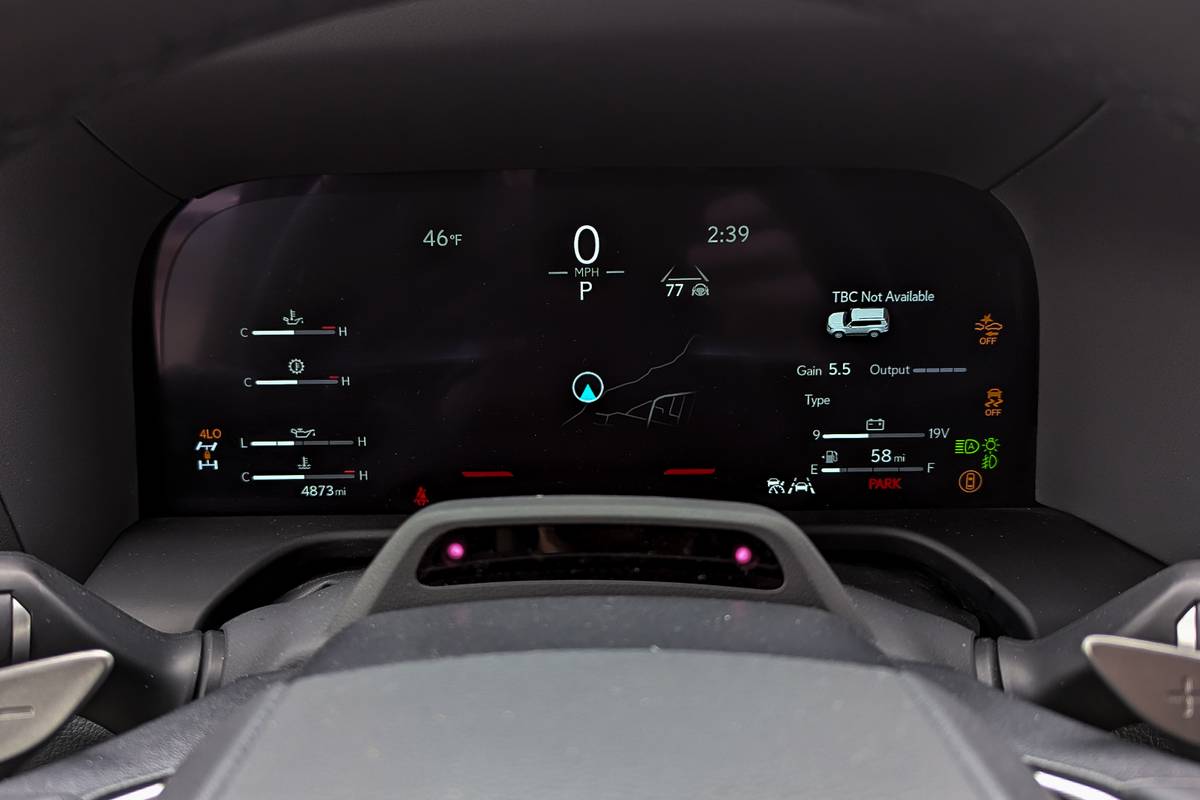
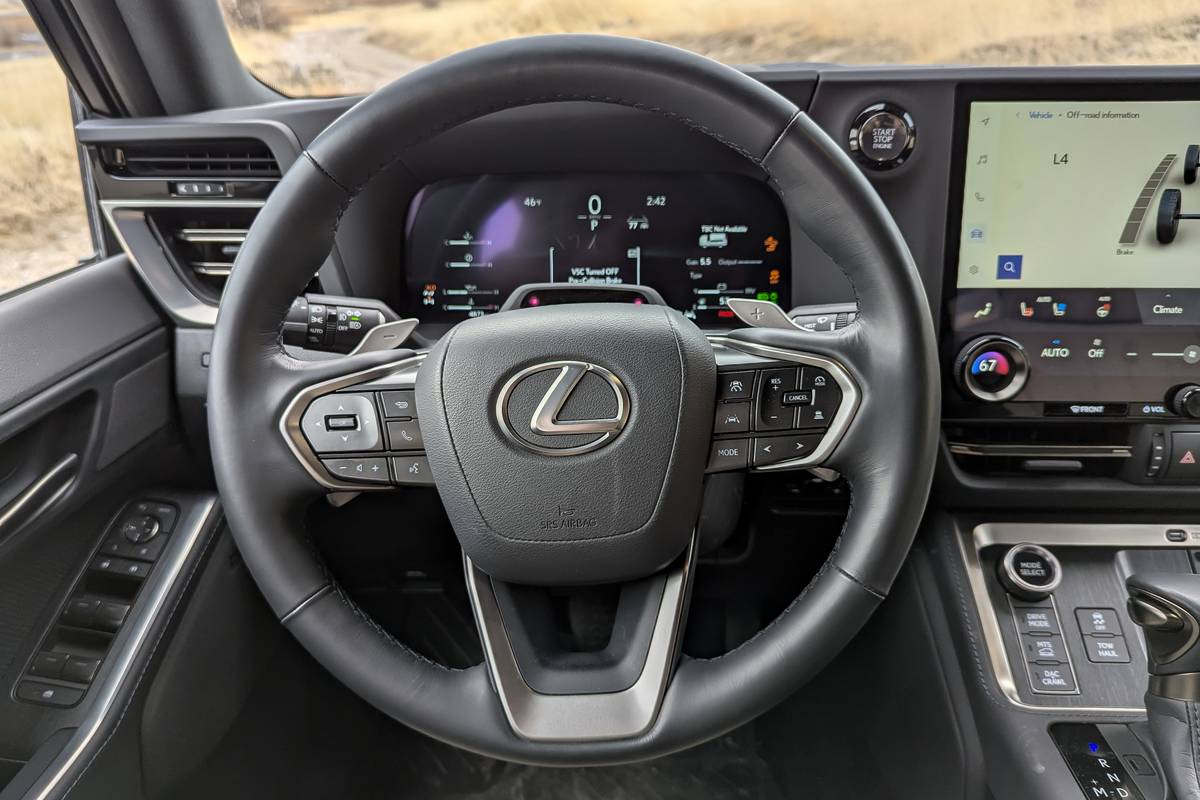
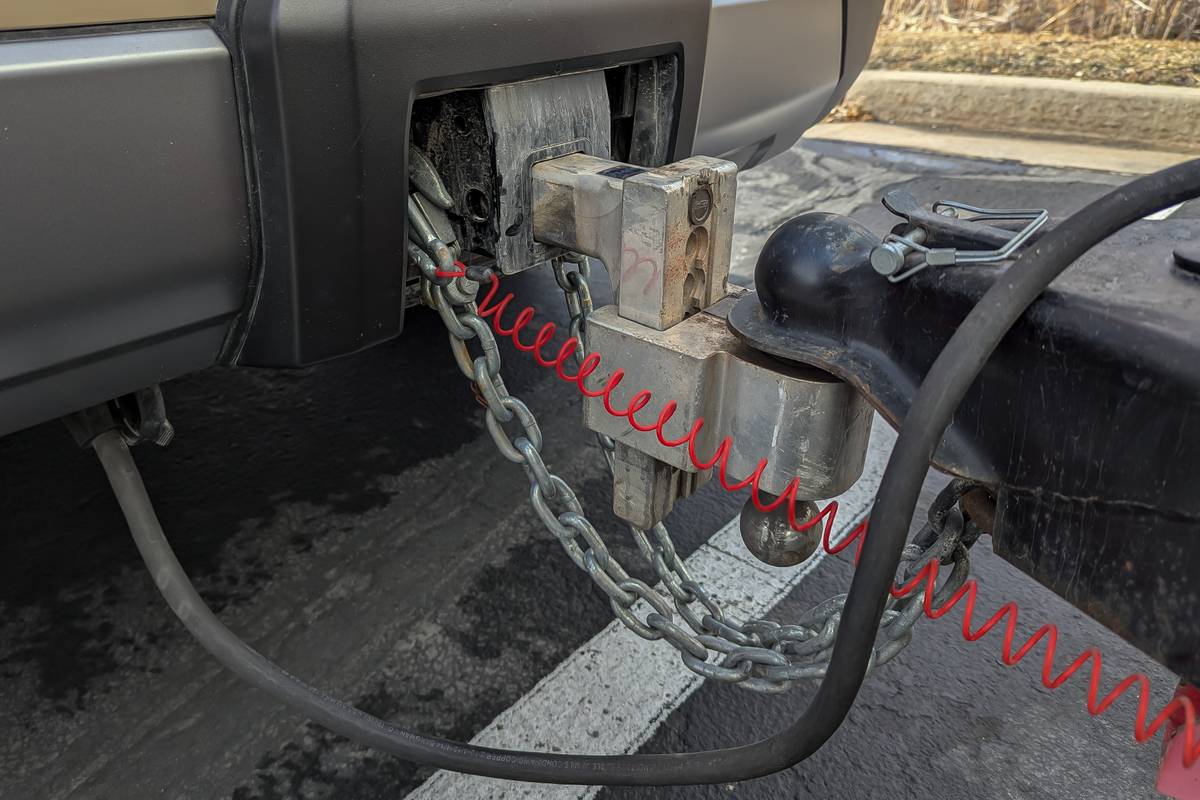
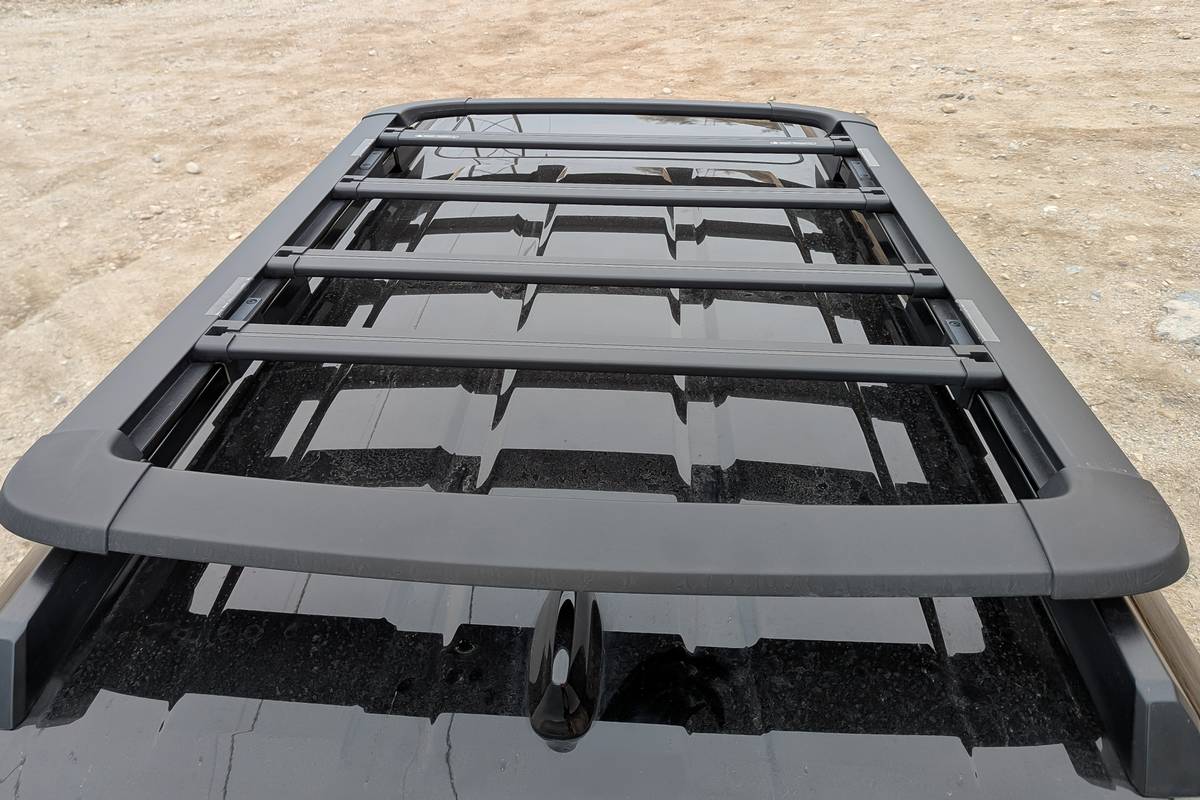
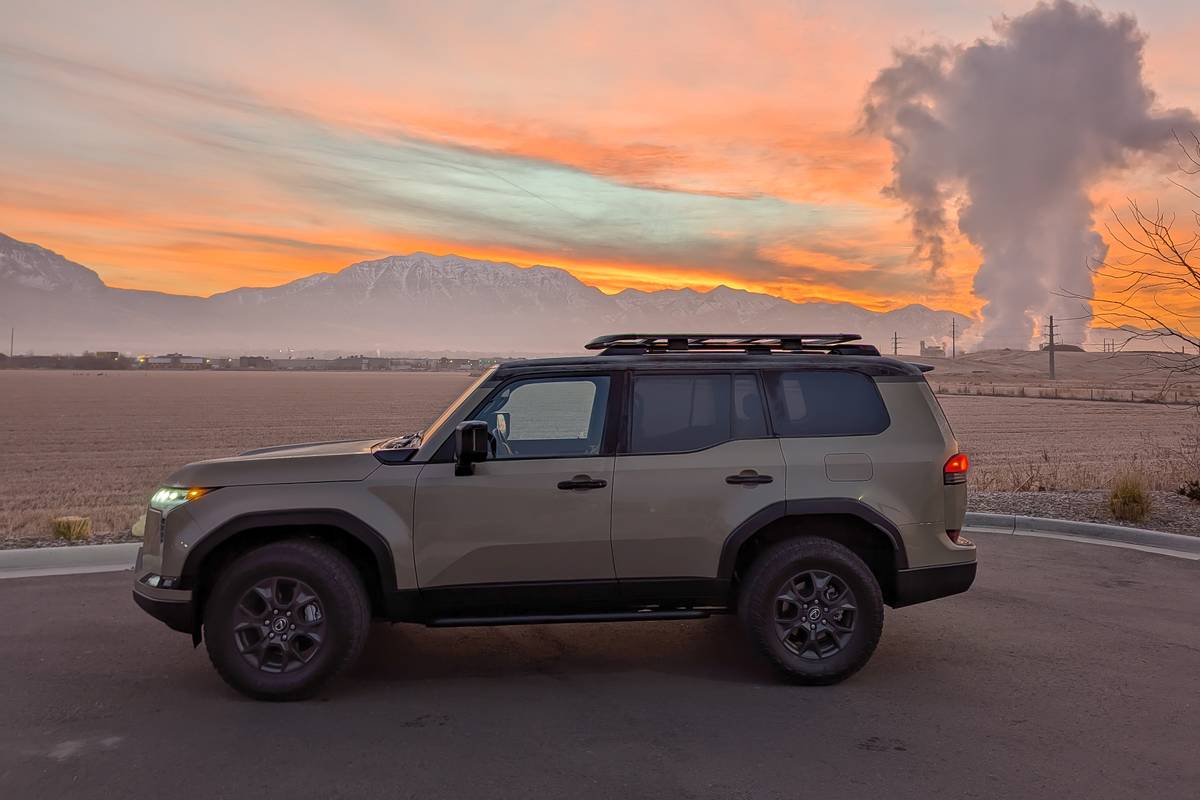
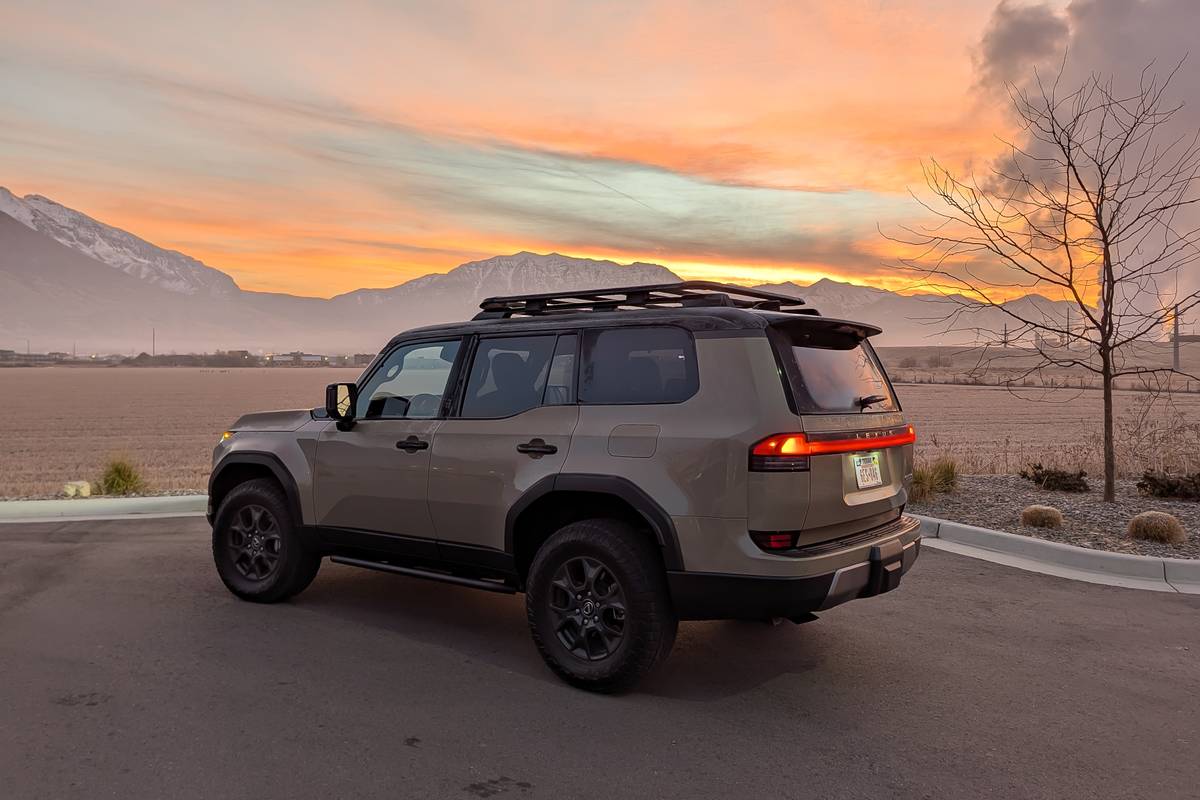
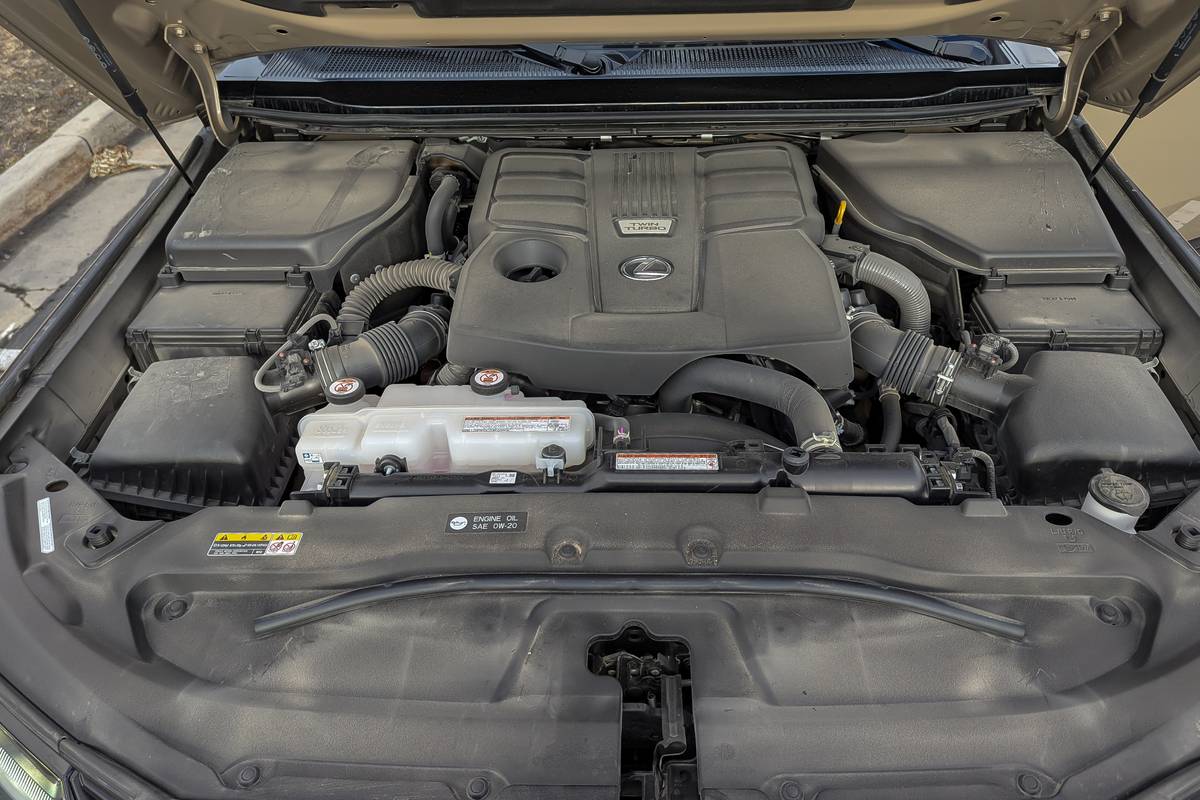
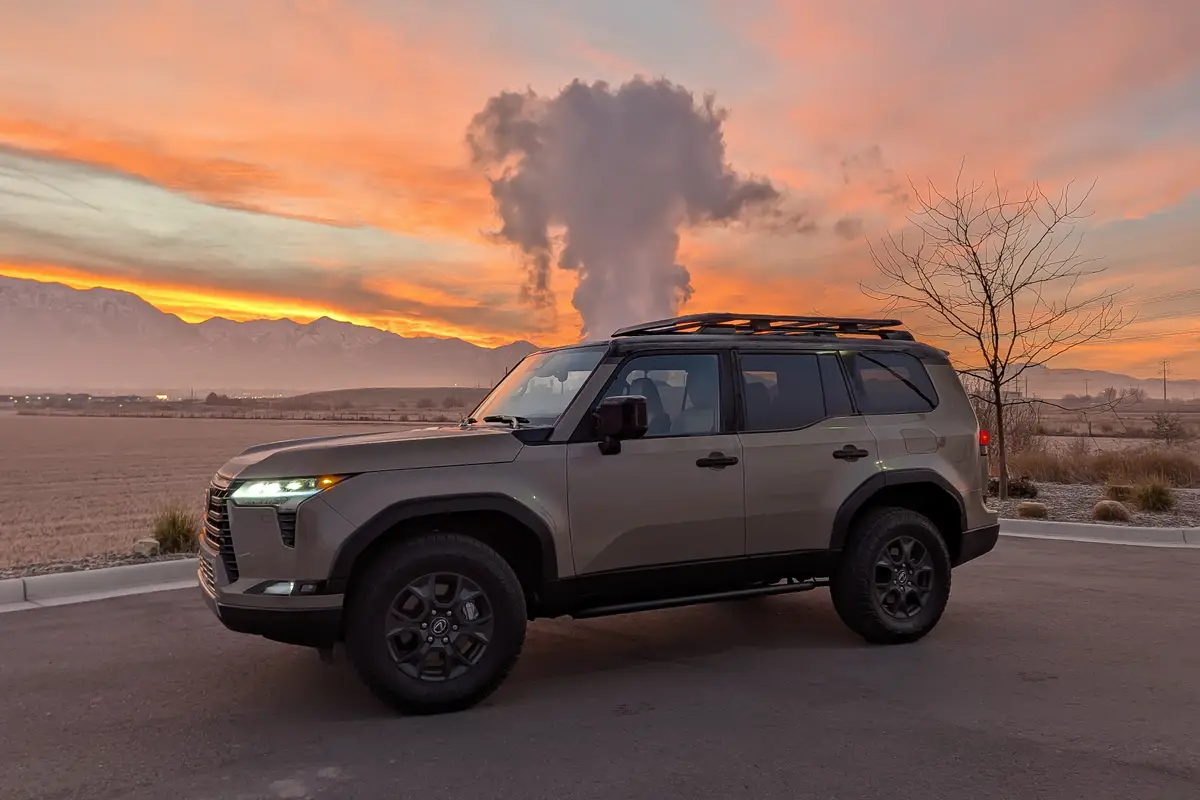
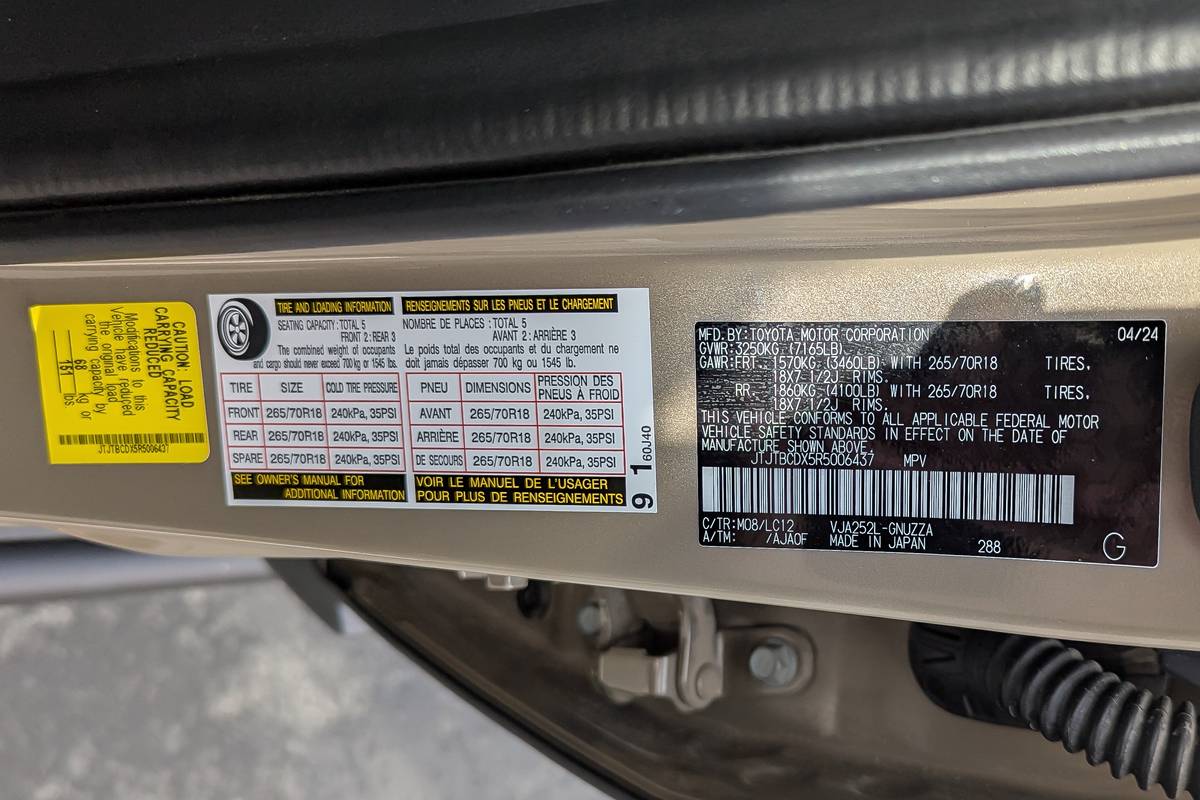
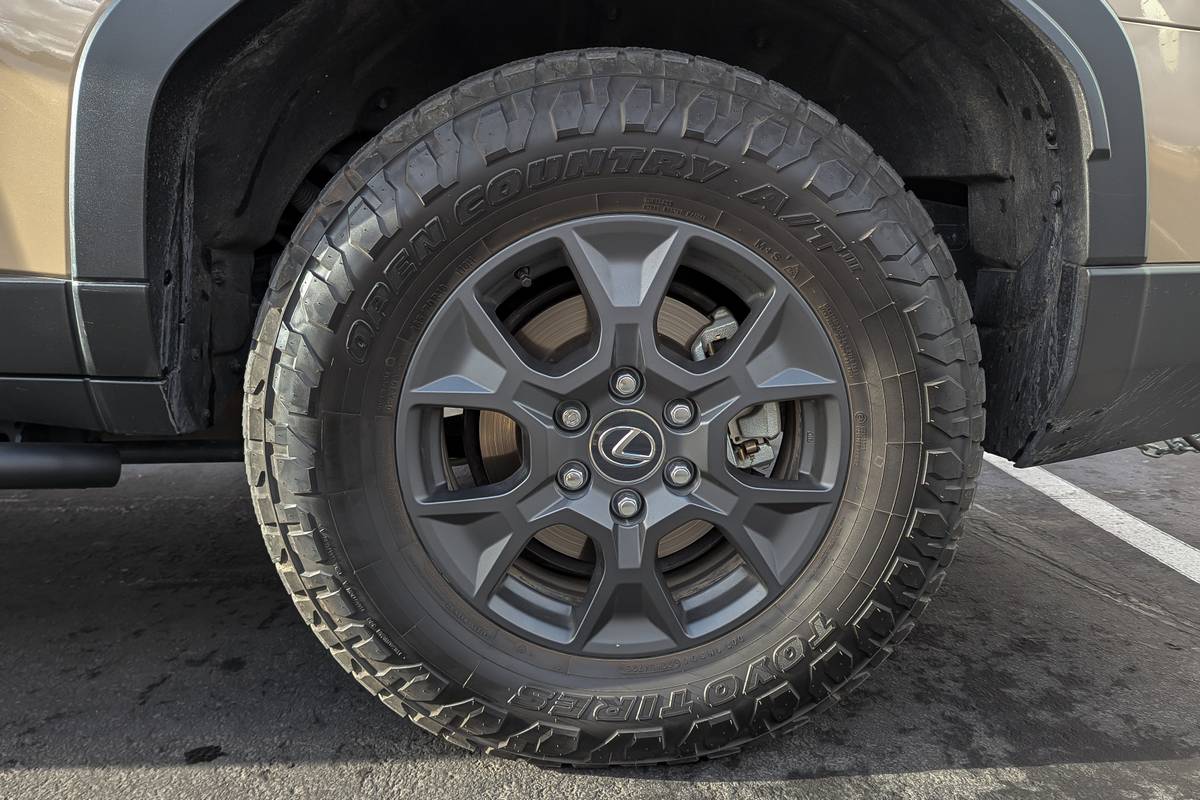

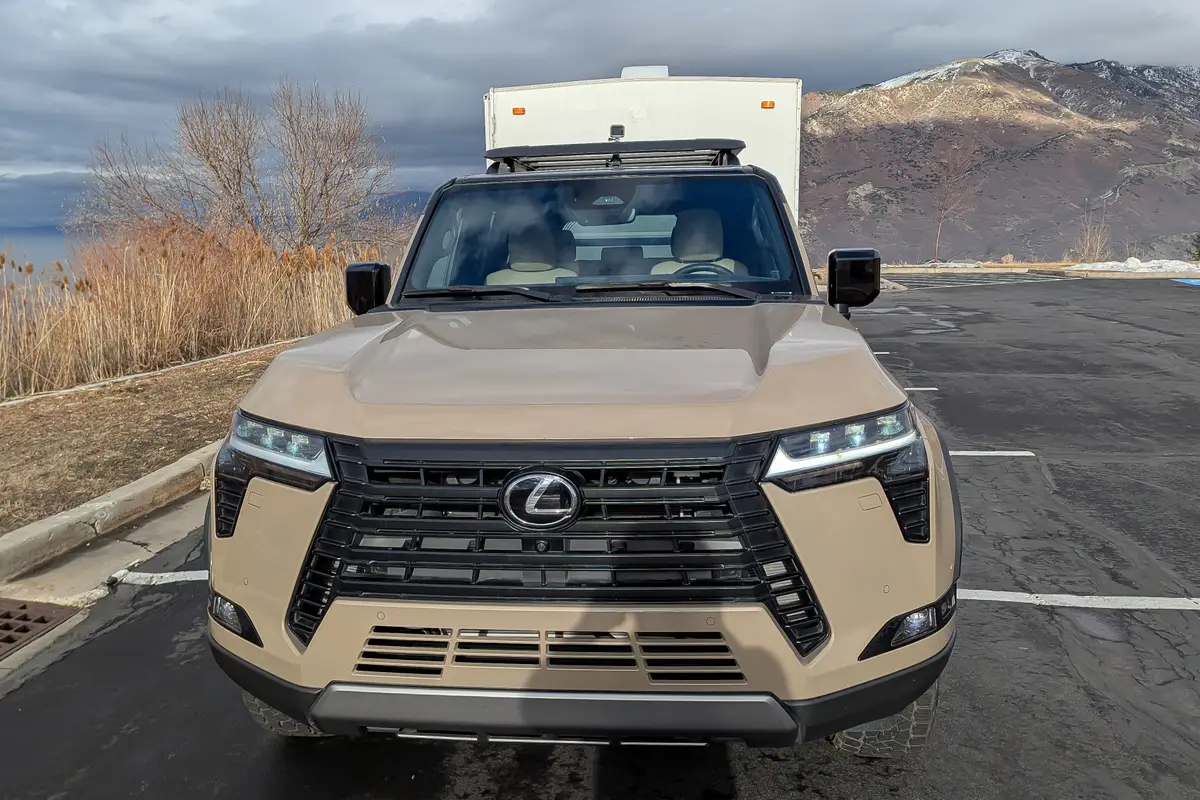



























What Are the Suspension Differences Between the Lexus GX and Toyota Land Cruiser?
The Land Cruiser uses a typical suspension setup with coil overs and independent dual control arms up front and a five-link solid rear axle with coil springs out back. Damping is provided by monotube shocks. There is no rear anti-sway bar, but all First Editions have a disconnecting anti-sway bar up front.
The GX uses the same general suspension layout as the Land Cruiser but adds its Electronic Kinetic Dynamic Suspension System (E-KDSS). This system uses large, stiff anti-sway bars front and rear that are attached to a hydraulic setup for varying the stiffness as needed. This means a more stable ride while towing on-road and good articulation off-road. Along with this, the shocks have electronically adjustable valving for matching the shock performance to the terrain or driving situation.
One thing to note is that the GX 550 has a noticeably stiffer rear suspension when empty. This seems contrary based on the E-KDSS and variable shock valving but is likely due to the higher spring rate for the increased payload and towing numbers.
The combined changes to the engine and suspension mean the GX 550 has higher towing and payload capacities versus the Land Cruiser.
2024 Toyota Land Cruiser First Edition Towing and Payload Capacities
- Maximum as-tested towing capacity: 6,000 pounds
- Maximum as-tested payload capacity: 957 pounds
2024 Lexus GX 550 Overtrail+ Towing and Payload Capacities
- Maximum as-tested towing capacity: 9,063 pounds
- Maximum as-tested payload: 1,545 pounds
The Trailer
I used the exact same camper trailer with both vehicles, weighing in at roughly 4,700 pounds, with a 490-pound tongue weight. The trailer is wide and tall with flat sides and a high center of gravity, which is everything you don’t want for towing stability. This makes it great for testing tow vehicles.

For both vehicles, I used an adjustable-height ball mount. In the Land Cruiser, I used a Fastway Flash Scale Ball Mount. However, like I experienced in other Lexus SUVs, I had trouble getting my hitch pin to fit due to body cladding. Therefore, I ended up using a Fastway Flash Secure Ball Mount that has internal pins with a lock cylinder in place of a hitch pin. (I’m a mechanical engineer and former product engineer for Progress Mfg. Inc. in Utah, makers of the Equal-i-zer hitch and Fastway Flash ball mounts.)
Lexus GX and Toyota Land Cruiser Towing Differences
Power
Overall, both vehicles performed quite well while towing. High torque outputs at low rpm for both made getting up to and maintaining speed a nonissue. One interesting aspect was that it was easy for both the Land Cruiser and GX 550 to maintain freeway speeds with minimal throttle input, though going full throttle for passing didn’t provide significantly more acceleration compared to 50% throttle. This is a telltale sign of engines with high torque at low rpm.
Accelerating from a stop, the GX felt like it had a slight edge over the Land Cruiser. This is likely a combination of the lower first gear in the 10-speed and higher peak torque and power outputs.
While peak torque outputs are similar between the two, the GX clearly had a higher sustained output. Making the long, steep climb on the route, both vehicles maintained speed and even accelerated without a problem; however, the GX felt quicker when needed. Once the Land Cruiser got into its peak torque range of the gas engine, there was little to no additional input from the electric motor. This results in the GX having more horsepower and torque under sustained grades than the Land Cruiser.
Stability
Much like the power segment, both vehicles performed well, but the GX outperformed the Land Cruiser. The GX was more stable and planted thanks to its stiff front and rear anti-sway bars and electronically controlled shock valving. There was more wind when I towed with the GX than with the Land Cruiser, yet even under those conditions, the GX still felt more stable.

Downhill
Both vehicles performed similarly when braking downhill. Engine braking, and regenerative braking on the Land Cruiser, were quite similar between the two. In both vehicles, the brakes were needed to keep the desired speed.
While located in different spots in each vehicle, the trailer brake controllers worked flawlessly. Braking was always smooth and controlled, and the vehicles were never unsettled even under harder braking.
Towing MPG
The four-cylinder hybrid system in the Land Cruiser managed to average 11.4 mpg over the whole drive, which is on the better end of any vehicle I’ve tested with this trailer over this course. This is in contrast to the GX that averaged 9.4 mpg over the same course, which is on the lower end. The caveat here is that the course is relatively short, and the vehicle’s computers are what were used to calculate average fuel economy.
Related Video:
Which Is Best for Towing?
The upgraded components on the GX compared to the Land Cruiser do make a significant difference for the towing experience. The GX outperforms the Land Cruiser in every towing metric except fuel consumption, where it burned roughly 20% more than the hybrid Toyota.
The 2024 Toyota Land Cruiser First Edition and 2024 Lexus GX 550 Overtrail+ are both capable tow rigs. The only complaint, and a minor one at that, is that neither of these vehicles has mirrors wide enough to safely tow an 8-foot-wide trailer.
For loads up to its 6,000-pound rating, the Land Cruiser is stable, powerful and controlled. Everything works well together, with the transmission shifting smoothly, the hybrid setup running unnoticed, and the trailer brake controller helping bring everything to a smooth and uneventful stop.
A winner must be selected, however, and for towing, I would choose the GX in every scenario over the Land Cruiser.

More From Cars.com:
- Find a New Lexus GX 550 For Sale Near You
- Find a New Toyota Land Cruiser For Sale Near You
- Is the 2024 Toyota Land Cruiser a Good SUV? 5 Pros, 2 Cons
- Off-Road Toyotas Compared: 2024 Land Cruiser Vs. 2025 4Runner
- Newly Affordable 2024 Toyota Land Cruiser Priced From $57,445
- Is the 2024 Lexus GX 550 a Good SUV? 5 Pros, 2 Cons
- These 10 SUVs Have the Highest Towing Capacity
- 2024 Ineos Grenadier Vs. 2024 Lexus GX 550 Overtrail+: Which Is Better Off-Road?
Cars.com’s Editorial department is your source for automotive news and reviews. In line with Cars.com’s long-standing ethics policy, editors and reviewers don’t accept gifts or free trips from automakers. The Editorial department is independent of Cars.com’s advertising, sales and sponsored content departments.
Featured stories































